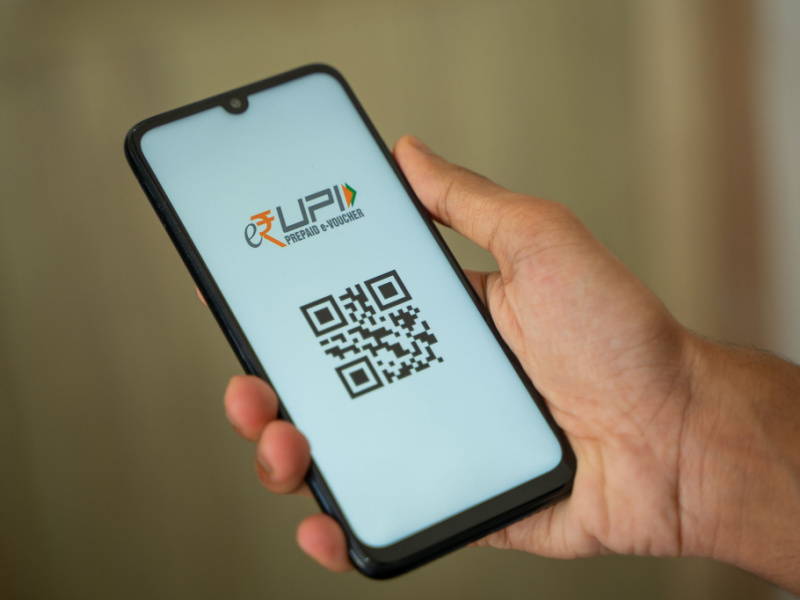
India’s digital push and its mission to become a cashless economy got the right boost through the adoption of UPI. This payment mechanism has facilitated digital transactions allowing users to send or receive money from their smartphones at any time and from any place. UPI or Unified Payments Interface is on its growth trajectory seen through user enrollments in millions. Currently, this service is free to use for every Indian citizen. However, the RBI may change this by levying certain fees on the usage of UPI.
The Reserve Bank of India is currently considering the introduction of a tiered-fee structure for UPI. Let’s take a look at how the UPI chargeability is shaping up and what can users expect in the near future.
Read More – 10 tips to secure yourself from UPI fraud
UPI charges new rules
The government proposed new UPI rules that allow banks to charge customers for UPI transactions exceeding 20 per month starting from January 2022. The charges can be a maximum of Rs. 2.5 per transaction. The move is aimed at promoting digital transactions and increasing revenue for banks, while P2P transactions and payments to government entities will not attract any charges. The article provides a comprehensive explanation of the proposed rules in 10 points.
RBI’s bid to make UPI transactions chargeable
Through its recent discussion paper, the Reserve Bank of India (RBI) has sought feedback from various stakeholders in the industry and the public to relook the existing policies on charges related to payment mechanisms such as the Unified Payment Interface (UPI).
The central bank is considering the introduction of a tiered-fee structure for UPI payments that could be applied as per the amount bands.
The RBI’s discussion paper has raised some key questions on the urgent requirement to create a balance between the approach of encouraging digital payments and the overall economic sustainability of these systems. The digital payments sector has been indecisive about these factors for a while.
Why does RBI want to make changes?
The central bank has explained the need for a comprehensive review of various procedures and rules on charges being applied by different payment systems in the country.
The RBI stated that there is a strong need for an efficient and sustainable payment mechanism in the country. These systems should be based on two main factors that include safety and security. Apart from these factors, there is also a need for reasonable charges for these systems such that there is a wider acceptance across the country.
Did you know
Today, UPI is a go-to system for most digital financial transactions and some of the top players include Paytm, Google Pay, PhonePe, etc. The total value of UPI transactions was Rs. 10 lakh crores in July’22 alone!
UPI is like any other funds transfer mechanism. So, if options like IMPS are charged, charges for funds transfer through UPI can be justified. Therefore, RBI’s discussion paper has suggested that a tiered charge structure for different bands of transaction value can be introduced.
Government’s clarification on UPI charges
Following the publicity of RBI’s discussion papers seeking public feedback, there has been a lot of concern among UPI users whether the payments system will be charged and upto what extent. Considering this, the Finance Ministry has clarified that there is a likelihood of charges being levied on United Payment Interface (UPI) services.
As per the government, UPI is a digital public service that offers high levels of convenience for payments. This benefits both, the public & the economy in general. Therefore, there is currently no consideration to impose charges for UPI services. As for the concerns raised by service providers, the government expects them to recover their costs through other means.
Comparing UPI with other digital payment modes
Here’s an interesting comparison between UPI, NEFT and IMPS:
| UPI | IMPS | NEFT | |
| Charges | Free | Charges apply. Differs across banks | Free for online transactions. Charges apply for offline transactions. |
| Minimum transfer | Re. 1 | Re. 1 | Re. 1 |
| Maximum transfer | Rs. 1 lakh | Rs. 2 lakhs | No limit or depends on banks. |
| Settlement | Immediate | Immediate | Half-hourly batches |
| Availability | Online only | Online only | Online and offline |
Conclusion
Even though the RBI discussion papers have triggered the rumour about UPI charges, any changes to this digital payments system will require government intervention. Users may therefore witness an open dialogue among the right authorities and stakeholders before any changes to the digital payments system in the country. All in all, one can expect that the decision on UPI charges will be based on creating the right balance between consumer benefit and business interests.
FAQs
UPI transactions can be done at any time and are not related to specific banking hours.
Currently, UPI is a free digital payment transfer service. However, in the near future, there are chances of it becoming a chargeable service.
UPI transactions are considered safe since these are carried out through a highly secured platform. However, in some cases, users may be trapped into frauds in UPI payments. Therefore, one has to be cautious before making a payment through this mode.
Yes, for using UPI services, one must have a bank account with a member bank.



























